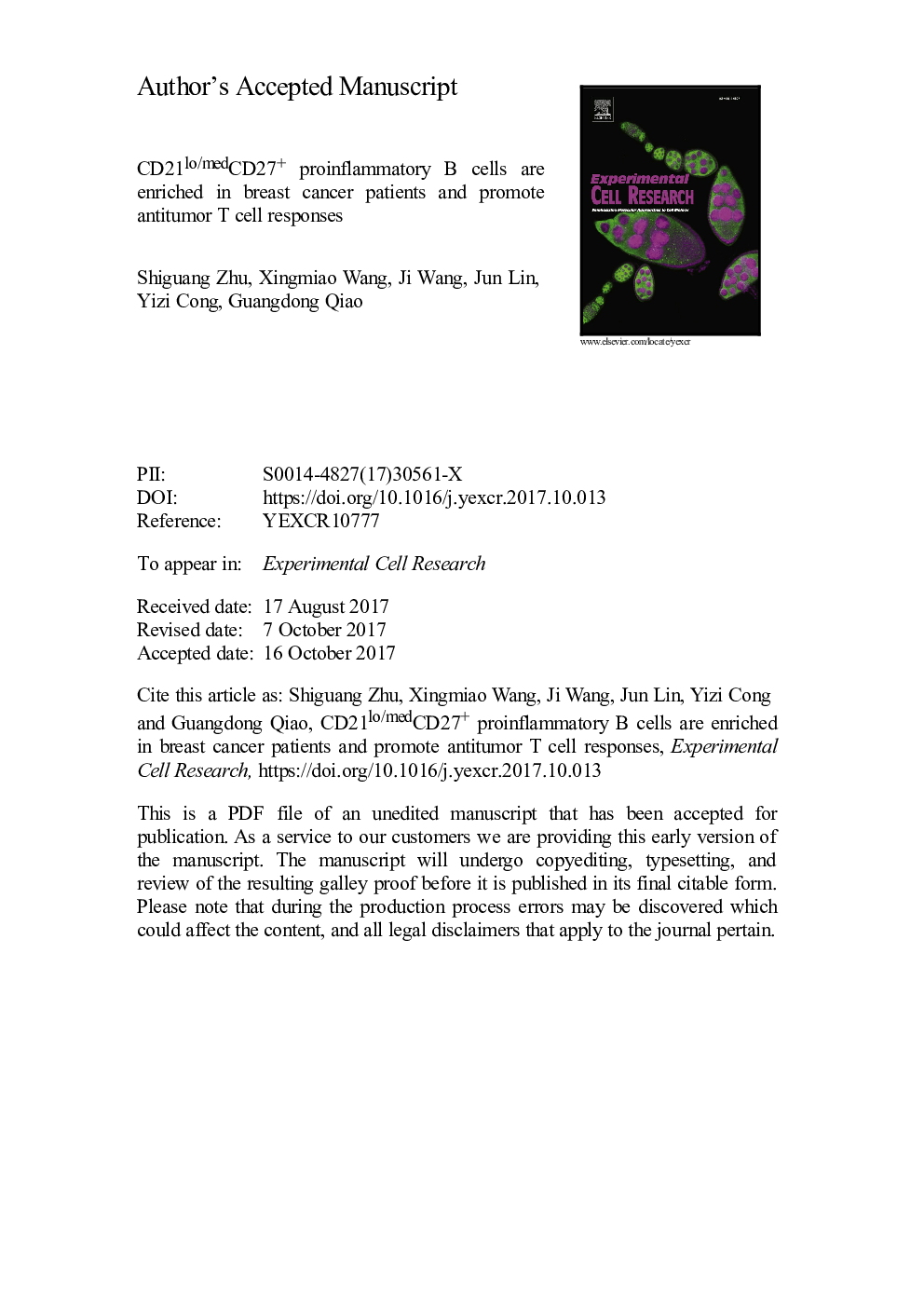| Article ID | Journal | Published Year | Pages | File Type |
|---|---|---|---|---|
| 8452036 | Experimental Cell Research | 2017 | 21 Pages |
Abstract
Breast cancer is a common malignancy and a major cause of death in women worldwide. The immunomodulatory role of B cells is being increasingly recognized in autoimmune diseases and cancers. In recent years, immunotherapeutic strategies that upregulate the patient's own antitumor T cell responses have shown promise in treating solid tumors and are being developed for breast cancer. In this study, we discovered that the B cells in breast cancer patients were enriched with interferon (IFN)-γ-expressing cells and presented high potency for IFN-γ production. These IFN-γ-expressing B cells were enriched in, but did not completely overlap with, the CD21lo/medCD27+IgM-IgD-IgG+IgA- B cell subset, which was consistent with IgG-expressing memory B cells. Compared to CD27+IgG- B cells, the CD27+IgG+ B cells expressed significantly higher IFN-γ expression. Given that B cells demonstrate important antigen-presenting function to T cells, we incubated CD27+IgG- B cells and CD27+IgG+ B cells with autologous CD4+ T cells. Compared to the CD4+ T cells that were incubated with CD27+IgG- B cells, the CD4+ T cells that were incubated with CD27+IgG+ B cells presented significantly higher TBX21 and lower FOXP3 expression, suggesting that the CD27+IgG+ B cells, but not the CD27+IgG- B cells, promoted Th1 and suppressed regulatory T cell responses. IFN-γ-expressing B cells were further enriched in the intratumoral environment of breast cancer patients. Together, we discovered that breast cancer patients presented an upregulation of IFN-γ-expressing proinflammatory B cells with the potency to promote Th1 responses.
Keywords
Related Topics
Life Sciences
Biochemistry, Genetics and Molecular Biology
Cancer Research
Authors
Shiguang Zhu, Xingmiao Wang, Ji Wang, Jun Lin, Yizi Cong, Guangdong Qiao,
